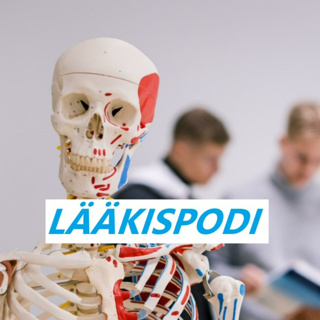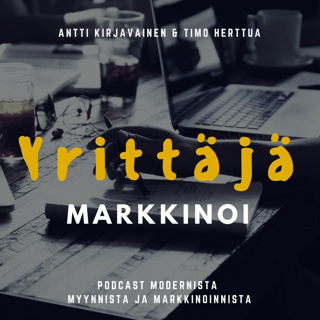
a16z Podcast: From Hidden Figure to Sonic BOOM
An aerospace engineer who worked for NASA for over 40 years, Dr. Christine Darden is one of the mathematicians that the book and movie Hidden Figures was based on. Darden eventually would lead the sonic boom team, going on to become the first African-American woman in senior management at NASA. In this intimate conversation with a16z’s general partner Jeff Jordan, held at the SF Jazz Center, Darden shares with Jordan how she first fell in love with geometry and math; the effect that Sputnik had on our culture (and her); and what it was like to work at NASA in the 1960s. And finally, Darden shares with us all the secrets of the sonic boom. Stay Updated:Find a16z on XFind a16z on LinkedInListen to the a16z Show on SpotifyListen to the a16z Show on Apple PodcastsFollow our host: https://twitter.com/eriktorenberg Please note that the content here is for informational purposes only; should NOT be taken as legal, business, tax, or investment advice or be used to evaluate any investment or security; and is not directed at any investors or potential investors in any a16z fund. a16z and its affiliates may maintain investments in the companies discussed. For more details please see a16z.com/disclosures. Hosted by Simplecast, an AdsWizz company. See pcm.adswizz.com for information about our collection and use of personal data for advertising.
22 Maalis 201738min

a16z Podcast: The Storage Renaissance
As we enter a new era of distributed computing -- and of big data, in the form of machine and deep learning -- storage becomes (even more) important. It might not be sexy, but storage is what makes the internet and cloud computing go round and round: "Without storage, we wouldn't have databases; without databases, we wouldn't have big data; we wouldn't have analytics ... we wouldn't have anything because information needs to be stored, and it needs to be retrieved." This is especially complicated by the fact that more and more computing is happening at the edge, as with autonomous car sensing. Clearly, storage is important. But now it's also undergoing a renaissance as it becomes faster, cheaper, and more in-memory. What does this mean for all the big players in the storage ecosystem? For CIOs and IT departments? For any company competing on data, whether it's in analyzing it or owning it? And for that matter: What is data, really? Beyond the existential questions, this episode of the a16z Podcast -- with a16z partner Peter Levine; Alluxio (formerly Tachyon) founder and CEO Haoyuan Li (“HY”); and storage industry analyst Mike Matchett of The Taneja Group -- covers all this and more. It even tries to make storage, er, great again. Stay Updated:Find a16z on XFind a16z on LinkedInListen to the a16z Show on SpotifyListen to the a16z Show on Apple PodcastsFollow our host: https://twitter.com/eriktorenberg Please note that the content here is for informational purposes only; should NOT be taken as legal, business, tax, or investment advice or be used to evaluate any investment or security; and is not directed at any investors or potential investors in any a16z fund. a16z and its affiliates may maintain investments in the companies discussed. For more details please see a16z.com/disclosures. Hosted by Simplecast, an AdsWizz company. See pcm.adswizz.com for information about our collection and use of personal data for advertising.
21 Maalis 201722min

a16z Podcast: The Product Edge in Machine Learning Startups
A lot of machine learning startups initially feel a bit of “impostor syndrome” around competing with big companies, because (the argument goes), those companies have all the data; surely we can’t beat that! Yet there are many ways startups can, and do, successfully compete with big companies. You can actually achieve great results in a lot of areas even with a relatively small data set, argue the guests on this podcast, if you build the right product on top of it. So how do you go about building the right product (beyond machine-learning algorithms in academic papers)? It’s about the whole system, the user experience, transparency, domain expertise, choosing the right tools. But what do you build, what do you buy, and do you bother to customize? Jensen Harris, CTO and co-founder of Textio, and AJ Shankar, CEO and co-founder of Everlaw, share their lessons learned here in this episode of the a16z Podcast — including what they wish they’d known early on. Because, observes moderator (and a16z board partner) Steven Sinofsky, “To achieve product market fit, there’s a whole bunch of stuff beyond a giant corpus of data, and the latest deep learning algorithm.” Machine learning is an ingredient, part of a modern software-as-a-service company; going beyond the hype, it’s really about figuring out the problem you’re trying to solve… and then figuring out where machine learning fits in (as opposed to the other way around). Customers are paying you to help solve a problem for them, after all. The views expressed here are those of the individual AH Capital Management, L.L.C. (“a16z”) personnel quoted and are not the views of a16z or its affiliates. Certain information contained in here has been obtained from third-party sources, including from portfolio companies of funds managed by a16z. While taken from sources believed to be reliable, a16z has not independently verified such information and makes no representations about the enduring accuracy of the information or its appropriateness for a given situation. This content is provided for informational purposes only, and should not be relied upon as legal, business, investment, or tax advice. You should consult your own advisers as to those matters. References to any securities or digital assets are for illustrative purposes only, and do not constitute an investment recommendation or offer to provide investment advisory services. Furthermore, this content is not directed at nor intended for use by any investors or prospective investors, and may not under any circumstances be relied upon when making a decision to invest in any fund managed by a16z. (An offering to invest in an a16z fund will be made only by the private placement memorandum, subscription agreement, and other relevant documentation of any such fund and should be read in their entirety.) Any investments or portfolio companies mentioned, referred to, or described are not representative of all investments in vehicles managed by a16z, and there can be no assurance that the investments will be profitable or that other investments made in the future will have similar characteristics or results. A list of investments made by funds managed by Andreessen Horowitz (excluding investments and certain publicly traded cryptocurrencies/ digital assets for which the issuer has not provided permission for a16z to disclose publicly) is available at https://a16z.com/investments/. Charts and graphs provided within are for informational purposes solely and should not be relied upon when making any investment decision. Past performance is not indicative of future results. The content speaks only as of the date indicated. Any projections, estimates, forecasts, targets, prospects, and/or opinions expressed in these materials are subject to change without notice and may differ or be contrary to opinions expressed by others. Please see https://a16z.com/disclosures for additional important information. Stay Updated:Find a16z on XFind a16z on LinkedInListen to the a16z Show on SpotifyListen to the a16z Show on Apple PodcastsFollow our host: https://twitter.com/eriktorenberg Please note that the content here is for informational purposes only; should NOT be taken as legal, business, tax, or investment advice or be used to evaluate any investment or security; and is not directed at any investors or potential investors in any a16z fund. a16z and its affiliates may maintain investments in the companies discussed. For more details please see a16z.com/disclosures. Hosted by Simplecast, an AdsWizz company. See pcm.adswizz.com for information about our collection and use of personal data for advertising.
17 Maalis 201721min

a16z Podcast: Build Your Personal Brand
Your brand, says head of a16z marketing and Outcast Agency co-founder Margit Wennmachers, is what people say about you when you're not in the room. And it's going to happen, whether you choose to have an active part in it or not. But what does this mean at an individual, not just company/product level? In this episode of the a16z Podcast, Wennmachers and Outcast CEO Alex Constantinople -- both longtime veterans of public relations and building executive profiles -- de-mystify what having and building a personal brand takes. It's not only about "thought leadership", either... a personal brand can also provide a filter for choosing what to do (and what not to do), as well as define your aspirations for where you want to go next. Even if you cringe at the idea of putting yourself in the spotlight. This conversation, moderated by a16z partner Hanne Tidnam, was recorded as part of the BreakLine Tech program for military veterans, an immersive education program for veterans transitioning into new careers (including a week of talks and courses hosted at Andreessen Horowitz). Stay Updated:Find a16z on XFind a16z on LinkedInListen to the a16z Show on SpotifyListen to the a16z Show on Apple PodcastsFollow our host: https://twitter.com/eriktorenberg Please note that the content here is for informational purposes only; should NOT be taken as legal, business, tax, or investment advice or be used to evaluate any investment or security; and is not directed at any investors or potential investors in any a16z fund. a16z and its affiliates may maintain investments in the companies discussed. For more details please see a16z.com/disclosures. Hosted by Simplecast, an AdsWizz company. See pcm.adswizz.com for information about our collection and use of personal data for advertising.
13 Maalis 201731min

a16z Podcast: The Business of Healthcare
Starbucks supposedly spends more on healthcare than it does on coffee beans. And 20 years ago, says Rajeev Singh, CEO of Accolade, healthcare was 10% of GDP; today it’s 19% -- that's nearly one-fifths of our gross domestic product. So what tools do we have to address the high costs of health care, especially as stakeholders increasingly look for value-based care? This episode, recorded at our a16z inaugural Summit and moderated by Vijay Pande (a16z general partner on the bio fund) discusses approaches that combine new tech + people + data to address and improve healthcare. What are the macro trends driving innovations in the business of healthcare? And what will define the success of companies in this space? (Hint: it's not directly related to costs or healthcare reform.) The views expressed here are those of the individual AH Capital Management, L.L.C. (“a16z”) personnel quoted and are not the views of a16z or its affiliates. Certain information contained in here has been obtained from third-party sources, including from portfolio companies of funds managed by a16z. While taken from sources believed to be reliable, a16z has not independently verified such information and makes no representations about the enduring accuracy of the information or its appropriateness for a given situation. This content is provided for informational purposes only, and should not be relied upon as legal, business, investment, or tax advice. You should consult your own advisers as to those matters. References to any securities or digital assets are for illustrative purposes only, and do not constitute an investment recommendation or offer to provide investment advisory services. Furthermore, this content is not directed at nor intended for use by any investors or prospective investors, and may not under any circumstances be relied upon when making a decision to invest in any fund managed by a16z. (An offering to invest in an a16z fund will be made only by the private placement memorandum, subscription agreement, and other relevant documentation of any such fund and should be read in their entirety.) Any investments or portfolio companies mentioned, referred to, or described are not representative of all investments in vehicles managed by a16z, and there can be no assurance that the investments will be profitable or that other investments made in the future will have similar characteristics or results. A list of investments made by funds managed by Andreessen Horowitz (excluding investments and certain publicly traded cryptocurrencies/ digital assets for which the issuer has not provided permission for a16z to disclose publicly) is available at https://a16z.com/investments/. Charts and graphs provided within are for informational purposes solely and should not be relied upon when making any investment decision. Past performance is not indicative of future results. The content speaks only as of the date indicated. Any projections, estimates, forecasts, targets, prospects, and/or opinions expressed in these materials are subject to change without notice and may differ or be contrary to opinions expressed by others. Please see https://a16z.com/disclosures for additional important information. Stay Updated:Find a16z on XFind a16z on LinkedInListen to the a16z Show on SpotifyListen to the a16z Show on Apple PodcastsFollow our host: https://twitter.com/eriktorenberg Please note that the content here is for informational purposes only; should NOT be taken as legal, business, tax, or investment advice or be used to evaluate any investment or security; and is not directed at any investors or potential investors in any a16z fund. a16z and its affiliates may maintain investments in the companies discussed. For more details please see a16z.com/disclosures. Hosted by Simplecast, an AdsWizz company. See pcm.adswizz.com for information about our collection and use of personal data for advertising.
9 Maalis 201717min

a16z Podcast: The Genetics Of Drug Delivery
In this episode of the a16z Podcast introduced by Vijay Pande (based on a presentation at our summit event), Russ Altman, Stanford professor of bioengineering -- and former chairman of their Bioengineering Department -- takes us on a short but deep tour of the possibilities of genomics in drug discovery. Including how building a large bank of human genetic variations will change our understanding and optimization of drug response. Altman (who also hosts his own radio show, "The Future of Everything" on SiriusXM and Stanford radio) describes how in much the same way we inherit our grandmother's eyes, or our great grandfather's ears, we also inherit a response to certain drugs: whether they work or not, what side effects we'll experience, how we react to them. But it's not just genetics information that matters here; it's also molecular, cellular, tissue, and other data about the whole organism. By applying data science and bioinformatics on a more complete data "bank" like this, for the first time, we can see the whole range of actions and side effects -- as well as possible new uses -- that specific drugs will have on specific individuals. The views expressed here are those of the individual AH Capital Management, L.L.C. (“a16z”) personnel quoted and are not the views of a16z or its affiliates. Certain information contained in here has been obtained from third-party sources, including from portfolio companies of funds managed by a16z. While taken from sources believed to be reliable, a16z has not independently verified such information and makes no representations about the enduring accuracy of the information or its appropriateness for a given situation. This content is provided for informational purposes only, and should not be relied upon as legal, business, investment, or tax advice. You should consult your own advisers as to those matters. References to any securities or digital assets are for illustrative purposes only, and do not constitute an investment recommendation or offer to provide investment advisory services. Furthermore, this content is not directed at nor intended for use by any investors or prospective investors, and may not under any circumstances be relied upon when making a decision to invest in any fund managed by a16z. (An offering to invest in an a16z fund will be made only by the private placement memorandum, subscription agreement, and other relevant documentation of any such fund and should be read in their entirety.) Any investments or portfolio companies mentioned, referred to, or described are not representative of all investments in vehicles managed by a16z, and there can be no assurance that the investments will be profitable or that other investments made in the future will have similar characteristics or results. A list of investments made by funds managed by Andreessen Horowitz (excluding investments and certain publicly traded cryptocurrencies/ digital assets for which the issuer has not provided permission for a16z to disclose publicly) is available at https://a16z.com/investments/. Charts and graphs provided within are for informational purposes solely and should not be relied upon when making any investment decision. Past performance is not indicative of future results. The content speaks only as of the date indicated. Any projections, estimates, forecasts, targets, prospects, and/or opinions expressed in these materials are subject to change without notice and may differ or be contrary to opinions expressed by others. Please see https://a16z.com/disclosures for additional important information. Stay Updated:Find a16z on XFind a16z on LinkedInListen to the a16z Show on SpotifyListen to the a16z Show on Apple PodcastsFollow our host: https://twitter.com/eriktorenberg Please note that the content here is for informational purposes only; should NOT be taken as legal, business, tax, or investment advice or be used to evaluate any investment or security; and is not directed at any investors or potential investors in any a16z fund. a16z and its affiliates may maintain investments in the companies discussed. For more details please see a16z.com/disclosures. Hosted by Simplecast, an AdsWizz company. See pcm.adswizz.com for information about our collection and use of personal data for advertising.
7 Maalis 201714min

a16z Podcast: Technology, Mobility, and the American Dream
The irony of our systems working so well -- technological, corporate, and yes, even political -- is that we've become too comfortable: matching to others just like us, producing less, taking fewer risks. But isn't the very point of technology to make our lives more comfortable? Yes... until "we" -- whether an entire class, generation, ethnic group, or country like the U.S. -- become a little too complacent. Or so argues Tyler Cowen in his new book, The Complacent Class: The Self-Defeating Quest for the American Dream. We've even outsourced our mobility to immigrants, observes Cowen (who is also a prolific economics blogger, columnist, and professor at George Mason University and director of the Mercatus Center there). Which is great... until you realize we're also giving up so much of that dynamism ourselves. This complacency affects everything from how economies to corporations to individuals grow, and we discuss how in this episode of the a16z Podcast (with Alex Rampell and Sonal Chokshi). "The general problem is that 'veto points' build up in a lot of systems as they grow larger and more bureaucratic." That's why we have NIMBYism (and a bunch of other such -isms). Corporate cash becomes the new stagnant pool (watch out for those mosquitos!). The stability of real estate becomes a trap. Social media (and even some protest) becomes signaling vs. actually doing something. As for culture: Who defines it? And is it time to bring back the individual quest? Stay Updated:Find a16z on XFind a16z on LinkedInListen to the a16z Show on SpotifyListen to the a16z Show on Apple PodcastsFollow our host: https://twitter.com/eriktorenberg Please note that the content here is for informational purposes only; should NOT be taken as legal, business, tax, or investment advice or be used to evaluate any investment or security; and is not directed at any investors or potential investors in any a16z fund. a16z and its affiliates may maintain investments in the companies discussed. For more details please see a16z.com/disclosures. Hosted by Simplecast, an AdsWizz company. See pcm.adswizz.com for information about our collection and use of personal data for advertising.
1 Maalis 201737min

a16z Podcast: The Future of... You
Humans have always wanted to enhance themselves -- from getting nutrition just-right to optimizing their performance, whether in sports or health or work. And food is a big part of all that. But our current systems of food production (and consumption) are far from efficient and sustainable let alone optimizable. That's where a whole new generation of wearable/ bio-feedback, food and nutrition, food production, and performance enhancement/ "nootropics" companies come in. How do these approaches move from the internet and online communities into the mainstream? Or from the university lab to the field? Or, put yet another way, from hobby to daily practice? After all, what we measure, what we take in, and what we output defines what it means to be human. We discuss this "future of you" in this episode of the a16z podcast with Daniel Chao, CEO of Halo Neuroscience; Rob Rhinehart, CEO of Soylent; James Rogers, CEO of Apeel; and Geoffrey Woo, CEO of Nootrobox -- based on a conversation with Chris Dixon at our inaugural Summit event. The views expressed here are those of the individual AH Capital Management, L.L.C. (“a16z”) personnel quoted and are not the views of a16z or its affiliates. Certain information contained in here has been obtained from third-party sources, including from portfolio companies of funds managed by a16z. While taken from sources believed to be reliable, a16z has not independently verified such information and makes no representations about the enduring accuracy of the information or its appropriateness for a given situation. This content is provided for informational purposes only, and should not be relied upon as legal, business, investment, or tax advice. You should consult your own advisers as to those matters. References to any securities or digital assets are for illustrative purposes only, and do not constitute an investment recommendation or offer to provide investment advisory services. Furthermore, this content is not directed at nor intended for use by any investors or prospective investors, and may not under any circumstances be relied upon when making a decision to invest in any fund managed by a16z. (An offering to invest in an a16z fund will be made only by the private placement memorandum, subscription agreement, and other relevant documentation of any such fund and should be read in their entirety.) Any investments or portfolio companies mentioned, referred to, or described are not representative of all investments in vehicles managed by a16z, and there can be no assurance that the investments will be profitable or that other investments made in the future will have similar characteristics or results. A list of investments made by funds managed by Andreessen Horowitz (excluding investments and certain publicly traded cryptocurrencies/ digital assets for which the issuer has not provided permission for a16z to disclose publicly) is available at https://a16z.com/investments/. Charts and graphs provided within are for informational purposes solely and should not be relied upon when making any investment decision. Past performance is not indicative of future results. The content speaks only as of the date indicated. Any projections, estimates, forecasts, targets, prospects, and/or opinions expressed in these materials are subject to change without notice and may differ or be contrary to opinions expressed by others. Please see https://a16z.com/disclosures for additional important information. Stay Updated:Find a16z on XFind a16z on LinkedInListen to the a16z Show on SpotifyListen to the a16z Show on Apple PodcastsFollow our host: https://twitter.com/eriktorenberg Please note that the content here is for informational purposes only; should NOT be taken as legal, business, tax, or investment advice or be used to evaluate any investment or security; and is not directed at any investors or potential investors in any a16z fund. a16z and its affiliates may maintain investments in the companies discussed. For more details please see a16z.com/disclosures. Hosted by Simplecast, an AdsWizz company. See pcm.adswizz.com for information about our collection and use of personal data for advertising.
28 Helmi 201719min






















